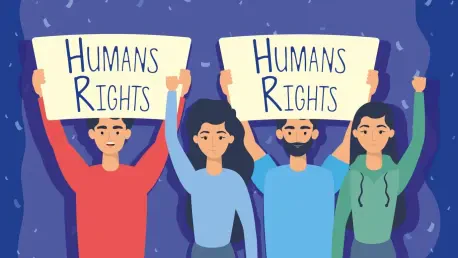The proposal to recognize “gender apartheid” as a distinct international crime under a new treaty addressing crimes against humanity has gained momentum as U.N. member states gear up for negotiations. Scheduled to conclude in 2029, these discussions aim to incorporate specific language identifying and penalizing gender apartheid. This term—which has been historically associated with South Africa’s racial segregation policies—is being repurposed to describe systematic violations of women’s rights, like those perpetrated by the Taliban in Afghanistan. This push is not just about acknowledging the gravity of gender oppression but about filling significant gaps in international law that leave women and girls vulnerable. The absence of a comprehensive treaty specifically addressing crimes against humanity limits governmental responses and public understanding, thus often marginalizing violations occurring outside armed conflict. In this light, advocates are calling for a more robust legal framework that offers justice and accountability for victims of gender-based violations.
The Proposal for Gender Apartheid Recognition
The campaign to classify gender apartheid as an international crime is driven by a need to bolster women’s rights worldwide through robust legal recognition and protection. The concept of gender apartheid finds its most compelling narrative in Afghanistan, where the Taliban’s policies have starkly underscored the importance of such protective measures. Described by Afghan women’s rights defenders, “gender apartheid” reflects the severe restrictions placed on women, aiming to highlight a systematic and structural violation of rights. This advocacy positions Afghanistan as a focal point for illustrating the urgent need for international legal reform capable of addressing these entrenched abuses. Meanwhile, the U.N. special rapporteur on human rights in Afghanistan has deemed these violations as gender persecution—an already recognized crime against humanity—paving the way for broader discussions at the U.N. level. The proposal seeks not only to provide more precise language in international law but also to embed a reciprocal understanding that prioritizes and protects women’s rights across various cultural and political landscapes.
Historical Context of Apartheid
The origins of racial apartheid in South Africa have informed the current discourse on gender-based oppression, albeit with a focus shift to gender rather than race. The systemic racial policies of the South African regime eventually garnered international condemnation, leading to apartheid’s designation as a crime against humanity. This historical precedent offers a framework for contemporary applications, suggesting that gender discrimination warrants similar condemnation and legal classification. By examining this historical trajectory, advocates argue for a parallel precedent to address gender apartheid on the international stage. Such an approach provides a powerful context through which the nuances of gender-based violations can be understood and legislated. Furthermore, drawing parallels with racial apartheid not only highlights the structural similarities of these oppressive systems but also galvanizes the call for global attention and action. While the focus on racial discrimination has receded, the need for similar mechanisms—tailored for gender discrimination—emphasizes broader categories of oppression warranting international scrutiny.
Support from International Bodies
The push for gender apartheid recognition as an international crime has received significant backing from key U.N. human rights leaders and international entities, such as the U.N. High Commissioner for Human Rights and UN Women. This support underscores a growing consensus among international stakeholders who view the classification of gender apartheid as addressing a critical human rights gap. These organizations have articulated the need for a legal apparatus that can address systemic violations at a global level, cementing institutional support for legislative amendments. Advocates for this change argue that recognizing gender apartheid will strengthen the protection framework for women and girls while facilitating accountability for perpetrators. Beyond institutional endorsements, a comprehensive treaty dedicated to crimes against humanity—encompassing gender apartheid—is anticipated to reinforce international norms against gender discrimination. This could not only advance legal accountability measures but also mark a significant shift towards world recognition and intolerance of systemic gender-based infractions.
Legal Considerations of Gender Apartheid
Evaluating the legal dimensions of recognizing gender apartheid under international law presents challenges, particularly in defining its scope and implications. While the Rome Statute currently identifies gender persecution as a crime, proponents argue that the addition of gender apartheid as a distinct crime would address overlooked facets in law, such as structural and institutionalized oppression. This involves placing gender-based discrimination within the sphere of recognized international crimes, akin to racial apartheid, yet differentiated by the specific focus on gender. The legal discourse around this topic necessitates deliberations on defining thresholds for recognition that can appropriately distinguish gender apartheid from existing categories of discrimination. However, some critics suggest that the Rome Statute’s current provisions suffice for holding accountable parties perpetrating gender-based violations. In contrast, supporters argue that an expanded legal focus will equip international systems to address broader structures of oppression. The conceptualization and recognition of gender apartheid thus remain central to discussions surrounding the evolution of international legal frameworks.
The Relationship to Other Crimes
Despite recognition of gender persecution under current legal frameworks, the proposal to establish gender apartheid as its separate crime suggests that existing measures insufficiently capture the full spectrum of gendered oppression. Gender apartheid proponents argue that this legal distinction would address gaps while providing a more comprehensive international approach to tackling systematic disenfranchisement of women. The current overlap in definitions has led to debates on whether augmenting international law with gender apartheid would streamline efforts or create redundancy. But the crux of this argument centers on the proposal’s ability to better encompass wide-ranging structural violations, specifically in regimes like the Taliban, where they are intricately woven into societal fabric. Advocates see this initiative as pivotal in ensuring accountability measures are not limited to isolated incidents but are expansively applicable across various forms of institutional oppression. While judicial pathways exist to address gender persecution, the institutional advocacy for gender apartheid highlights a crossroads in achieving legal clarity and addressing widespread gender-based human rights abuses.
Historical Legal Developments
Historical precedents serve as a foundational guide for incorporating gender apartheid into international crimes, drawing from the successful classification of racial apartheid in the past. Such developments have informed contemporary legal frameworks aiming to address persistent forms of discrimination beyond racial or armed conflict scenarios by integrating gender-based crimes. Advocates seek to build on these historical patterns, ensuring consistency in addressing both racial and gender-based crimes as harrowing human rights violations. The recognition of racial apartheid catalyzed significant reforms, empowering legal systems to confront oppression on broader scales. Similarly, recognizing gender apartheid is envisioned to elevate the accountability mechanism for systemic injustices, aligning with evolving norms that call for expanded human rights safeguards. Integrating gender apartheid within crimes against humanity legislation reflects an evolving legal landscape that consistently seeks to adapt to contemporary rights challenges. As international legal systems wrestle with multifaceted discrimination, incorporating gender apartheid serves as a crucial step towards establishing equitable and universally applicable legal protections.
A Unified International Response
The push to classify gender apartheid as an international crime underscores the essential need for a coordinated global response to confront gender-based crimes against humanity. This movement suggests that legal recognition is not merely symbolic; it represents a firm stand against such injustices and enhances worldwide capabilities to hold wrongdoers accountable. Labeling gender apartheid as a recognized offense would mark a significant advancement in legal and humanitarian protections for women globally. Advocacy efforts, especially from Afghan women, play a vital role in driving legal reforms, presenting a compelling narrative for communities facing similar oppression who seek justice and legal channels. A united approach would serve as a precedent, emphasizing that serious gender-based violations must attract international attention and challenge regimes that continue to uphold systemic gender oppression.
Moreover, integrating gender apartheid into crimes against humanity legislation creates a pivotal opportunity to broaden legal protections for women and girls worldwide. Recognizing this discrimination solidifies international norms against gender biases, enabling new avenues for legal action and accountability. This groundbreaking step shifts the global stance on systemic gender-based violations, ensuring the international community’s unwavering commitment to promoting equitable human rights protections for future generations.









